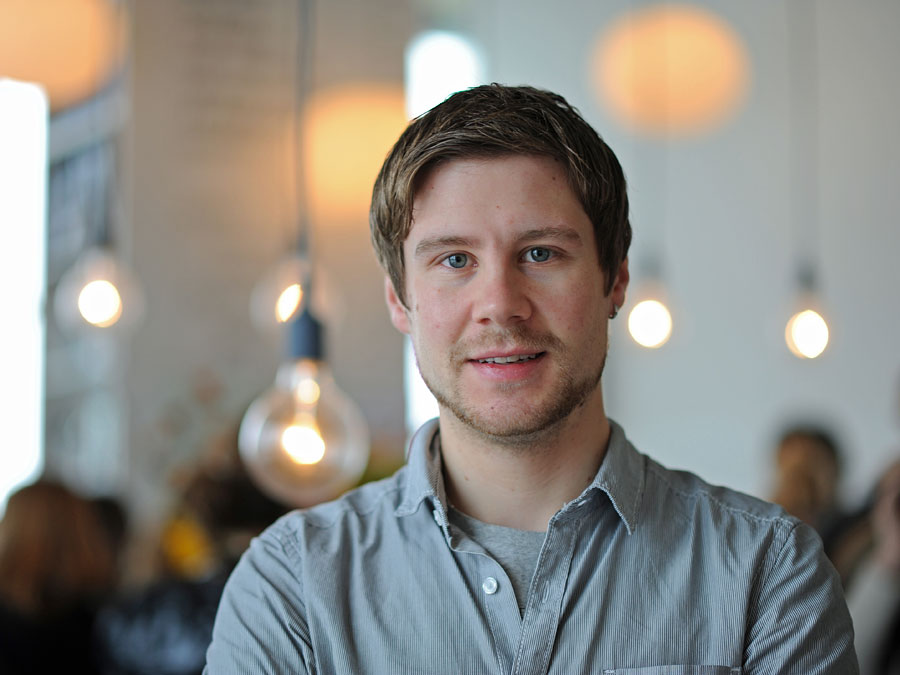High-level Political Forum on Sustainable Development:
Youth delegate Rupert Heindl will be flying to New York

How did you become a youth delegate for "Sustainable Development" and how would you describe what it is about?
There was an application procedure in which you had to submit a written application. We are two delegates; my colleague is from Berlin. The commission goes back to the “Rio Summit” of 1992. Back then, for the first time, young people were regarded as the one group that is particularly affected by issues of sustainable development. Since the “World Summit” in Johannesburg in 2002, the German Federal Youth Council (Bundesjugendring) and the German Federal Ministry of Environment therefore send youth delegates to the UN Commission on Sustainable Development. This commission has now been replaced by the High-level Political Forum on Sustainable Development (HLPF).
What are your responsibilities?
Our main task is to represent the young people in Germany and to act as their public voice at the High-level Political Forum on Sustainable Development of the United Nations in New York. Therefore, it is very important to be in contact with many other young people. Furthermore, we are considered as experts. However, it is not a question of representing our own personal opinion – it is about the perspectives of the young people and about drawing attention to the opportunities we have to influence our future positively.
How can we manage to influence our future positively?
The biggest challenge is the question: "How can we shape the future of humanity in a sustainable manner?" When holding a lecture, my aim is to raise questions and draw attention to problems. Often enough, I cannot give the answers, but I want to motivate others to participate in the debate. After all, this is about our future – and if we want to make a difference, we all have to tackle the matter together.
Where does your interest in "Sustainable Development" come from?
As I have an agricultural background, my initial interest concerned the issue of ecology – and the question, where our food comes from. When talking about "Sustainable Development", one not only has to take the environment into account, but social and economic factors as well. My interest and my understanding of the whole topic have grown over time – thanks to my work as a regional chairman of the “Katholische Landjugendbewegung Bayern”, thanks to many travels abroad and above all, my studies. To me, it is particularly fascinating that in any country, one can meet young people who want to actively participate in creating a positive future.
When are you flying to New York and what awaits you there?
My trips to New York will take place in June/July of 2015 and in 2016. There, I will be part of the German government delegation; I will be organizing so-called “Side Events” and I take part in many debates. In addition – within a group of fellow youth delegates – one has the opportunity to agree on a joint position on a specific topic. Thus, participating in the Major Group for Children and Youth is a possibility to present the points of view of young people – regardless of the positions of governments.
What topics will be discussed in New York?
A major issue are the eight Millennium Development Goals that were defined in 2000. They will expire in 2015. Since these objectives are far from being achieved completely, there is already work in progress for a "Post-2015 Agenda" in which objectives of Sustainable Development are to be integrated as well. The youth delegates are supposed to help shape the resolution. Once these goals are defined, the youth delegates will also supervise and monitor the process as part of the HLPF.
How do you prepare yourself for your travels?
We have regular meetings with the responsible department of the German Federal Ministry of Environment. But for the most part, I pursue to have conversations with young people.
You are a student of Vocational Education at the TUM School of Education; your major course of study is Metal Engineering, your minor is Theology. How does one decide to take up such an unusual combination of subjects?
I am a trained Automotive Mechatronics Engineer. That’s where my interest in mechanical engineering comes from. But I wanted to combine the technical issues with something from the field of Liberal Arts. I grew up in the countryside and my environment was always traditionally catholic. I had a religious upbringing, but I actually didn’t know about the exact backgrounds. This was a motivation for me to learn more about the matter during my studies. The two subjects complement each other excellently: Especially, because Theology often addresses social difficulties in the context of the implementation of technical progress.
Where do you see yourself in the future?
Needless to say, right now, working on an international level is absolutely fascinating. Yet, I could also see myself becoming a vocational school teacher when I have my Master´s degree – or work at the University. At the moment of course, I want to do my share in making the world a better place and travel as much as possible.
- Contact Rupert Heindl: r.heindl@tum.de
- Jugenddelegierte für Nachhaltige Entwicklung at facebook